PRINCETON, NJ -- A strong majority of Americans (75%) want Congress to pass some version of President Obama's economic stimulus plan, but this group is split down the middle on whether it should be passed as is or with major changes.
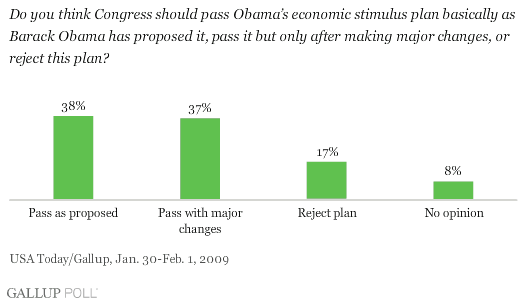
Naturally, support for the plan is highly partisan. Although few Republicans favor passing the plan as it is, more than 4 out of 10 say it should be passed with major changes, leaving only a minority of 35% of Republicans who say the plan should be rejected altogether. A majority of Democrats, on the other hand, say Obama's plan should be passed as is. Independents mirror the attitudes of the nation as a whole, split down the middle about passing it as is or with major changes.
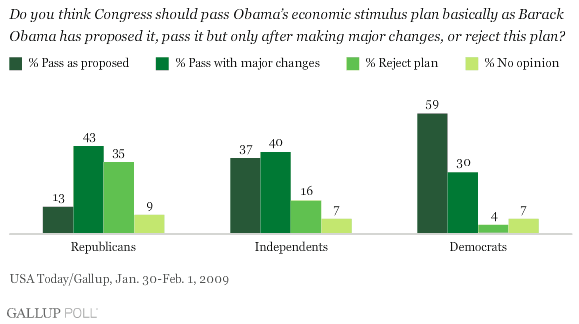
Thirty-one percent of Americans are following news about the stimulus plan very closely, with another 46% saying they are following it somewhat closely. Those who are most closely following news about the plan differ little from the overall national average in terms of their attitudes about the plan.
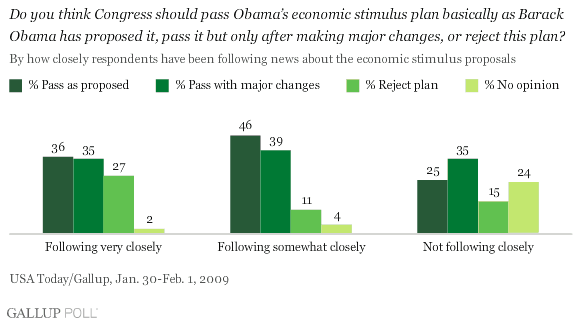
Low Confidence in the Plan's Impact on the Economy
Regardless of their attitudes about the stimulus plan, Americans remain significantly concerned that the plan would not stimulate the U.S. economy quickly enough.
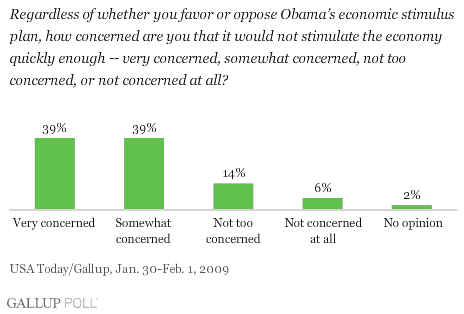
Moreover, Americans have fairly low expectations for the plan's ability to turn around the economy. Just 17% say the plan would make the economy a lot better, while another 47% say it would make the economy a little better. Seventeen percent (including more than a third of Republicans) go so far as to say the plan would make the economy worse.
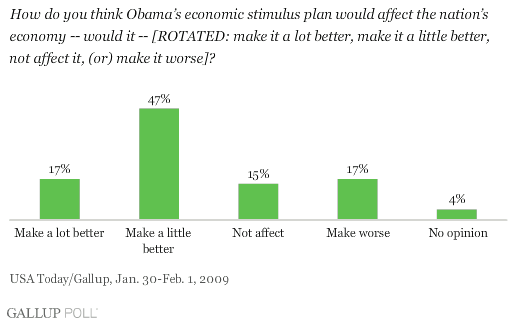
A follow-up question provides further evidence of a lack of confidence that the plan will have a dramatic and immediately positive impact on the economy. The 64% of Americans who say the plan will make the economy at least somewhat better were asked whether this would occur this year, or whether it would take longer than that. An overwhelming majority -- 85% -- of this group chose the more negative option that the plan would not produce positive effects until after this year. Thus, putting these two questions together, the data show that only 10% of Americans say the economy will get better this year as a result of Obama's stimulus plan.
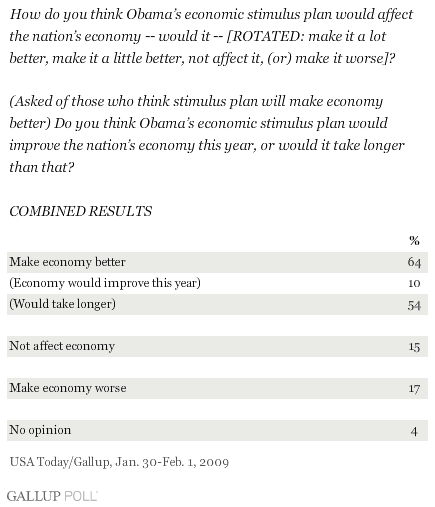
There is even less sanguinity about the impact of the plan on Americans' personal lives.
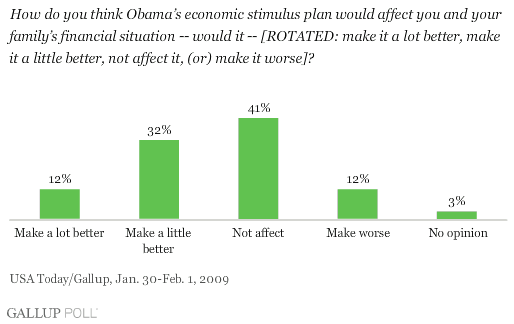
Only 44% of Americans say the plan will make their families' situations at least a little better, while the majority of 53% say the plan will not have an effect at all, or will actually make their financial situations worse.
Implications
While the majority of Americans favor Congress' passing some type of stimulus plan, there is remarkably little confidence on the part of the public that the plan would have an immediately positive impact on the U.S. economy. Americans are also pessimistic about the plan's potential positive impact on their own families' financial situations.
This lack of optimism that the stimulus will provide a "quick fix" for the economy may reflect in large part the public's profound pessimism about the depths of the economic problems the nation faces and a general pessimism about economic conditions improving anytime soon regardless of what the government does. Still, the data show that the majority of Americans are paying at least some attention to the debate over the stimulus, and about a third appear to be concerned enough about the plan to suggest that it needs major changes before it is passed into law.
Survey Methods
Results are based on telephone interviews with 1,027 national adults, aged 18 and older, conducted Jan. 30-Feb. 1, 2009. For results based on the total sample of national adults, one can say with 95% confidence that the maximum margin of sampling error is ±3 percentage points.
Interviews are conducted with respondents on land-line telephones (for respondents with a land-line telephone) and cellular phones (for respondents who are cell-phone only).
In addition to sampling error, question wording and practical difficulties in conducting surveys can introduce error or bias into the findings of public opinion polls.
